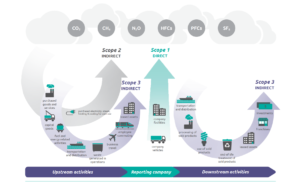Climate Crisis Reaches "Code Red" by UN - Carbon Emissions Must be Reduced
The UN has lead the way to communicating information about the climate crisis including their 17 ESGs. After the completion of the Fourteenth Session of Working Group I and Fifty-Fourth Session of the IPCC, Electronic Session, 26 July - 6 August 2021, the UN announced that the planet is warming faster than expected and it's urgent that we all take some action to ensure it does not speed up any further!
At the conclusion of the IPCC Sessions they published the report "Climate Change 2021: The Physical Science Basis" which goes into great detail regarding increasing global temperatures and the disastrous results if they continue to rise at the current pace.

"As we witness our planet transforming around us we watch, listen, measure … respond."
According to a recent UN press release, "The internationally agreed threshold of 1.5°C is perilously close...We must act decisively now to keep 1.5°C alive. We are already at 1.2°C and rising. Warming has accelerated in recent decades. Every fraction of a degree counts. Greenhouse‑gas concentrations are at record levels. Extreme weather and climate disasters are increasing in frequency and intensity. That is why this year’s United Nations climate conference in Glasgow is so important."
The Call to Reduce Carbon Emissions
Greenhouse gases are at the root of the issue. As the world continues its consumption of coal and fossil fuels continued climate temperate rises are inevitable. "Without deep carbon pollution cuts now, the 1.5°C goal will fall quickly out of reach," was also stated in the UN press release. The UN is not the only organization raising the red flag.
The website, Climate Code Red, inspired by the book of the same name by authors Philip Sutton and David Spratt, reports a major new research paper "released by the Australian-based Breakthrough National Centre for Climate Restoration, says shorter-term emission reduction targets are needed to compel action to cut fossil fuel use."
“Long-term targets are an excuse for procrastination,” co-author of the paper and former fossil fuel executive, Ian Dunlop, said.
“The short-term matters most. Emergency action to cool and protect the most vulnerable climate and ecosystems is vital. Failure to do so right now may make long-term targets irrelevant if cascades of system-level biophysical changes are triggered.”
Manufacturing is one industry taking the lead to becoming carbon net-neutral. The World Economic forum reports, "As the urgency to alter the business-as-usual approach becomes a priority, industry leaders also recognize the pressing need to collectively drive concrete actions and build multi-stakeholder collaborations to speed the transition towards a carbon-neutral future of manufacturing over the next decade."
Can We Still Make a Difference?
The Smithsonian Magazine's reporting of the IPCC report has an optimist twist. It states that BBC News reporter, Matt McGrath interviewed report co-author Piers Forster, a professor of physical climate change at the University of Leeds who said, “the thought before was that we could get increasing temperatures even after net zero. But we now expect nature to be kind to us and if we are able to achieve net zero, we hopefully won’t get any further temperature increase; and if we are able to achieve net-zero greenhouse gases, we should eventually be able to reverse some of that temperature increase and get some cooling.”


